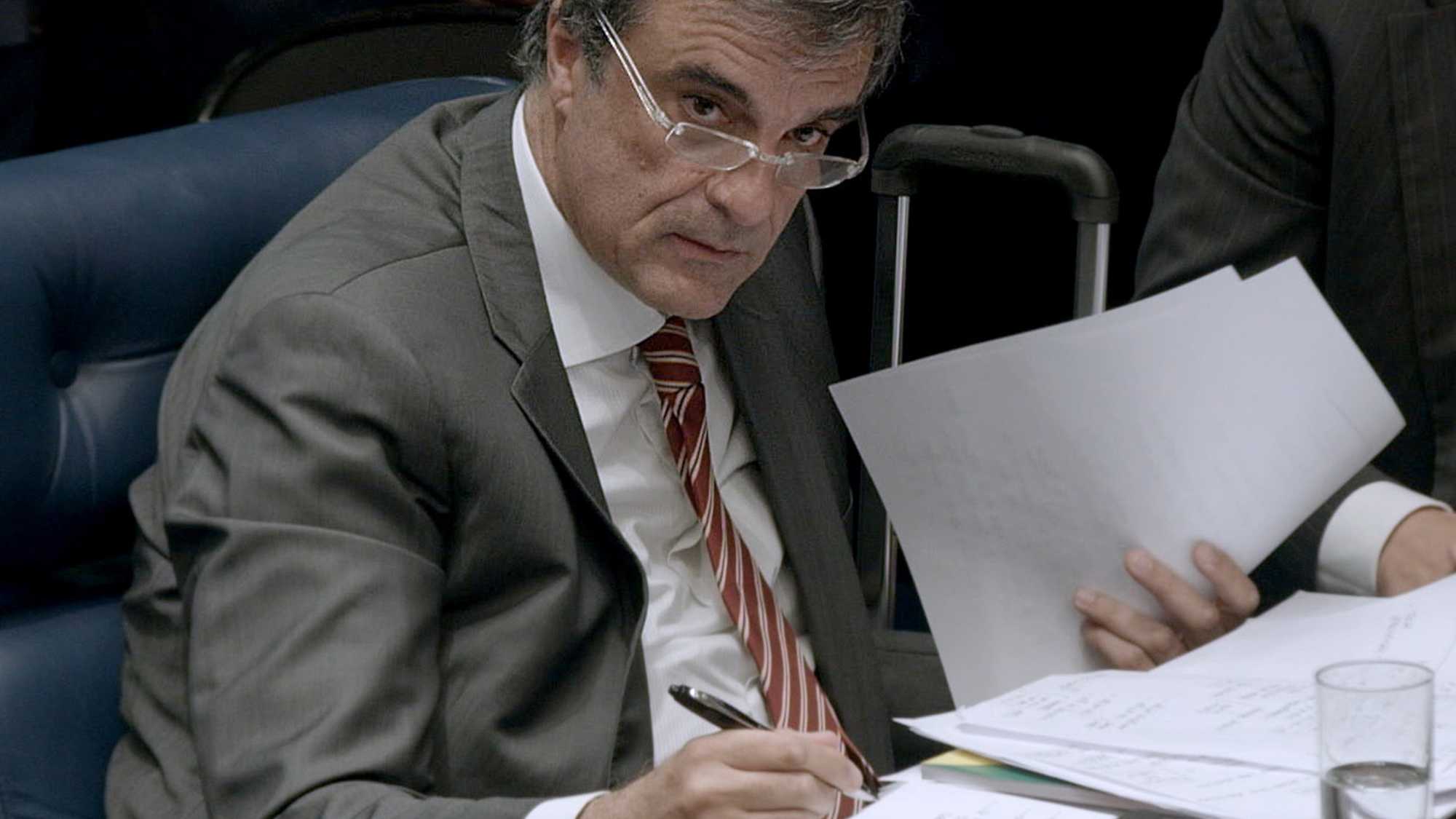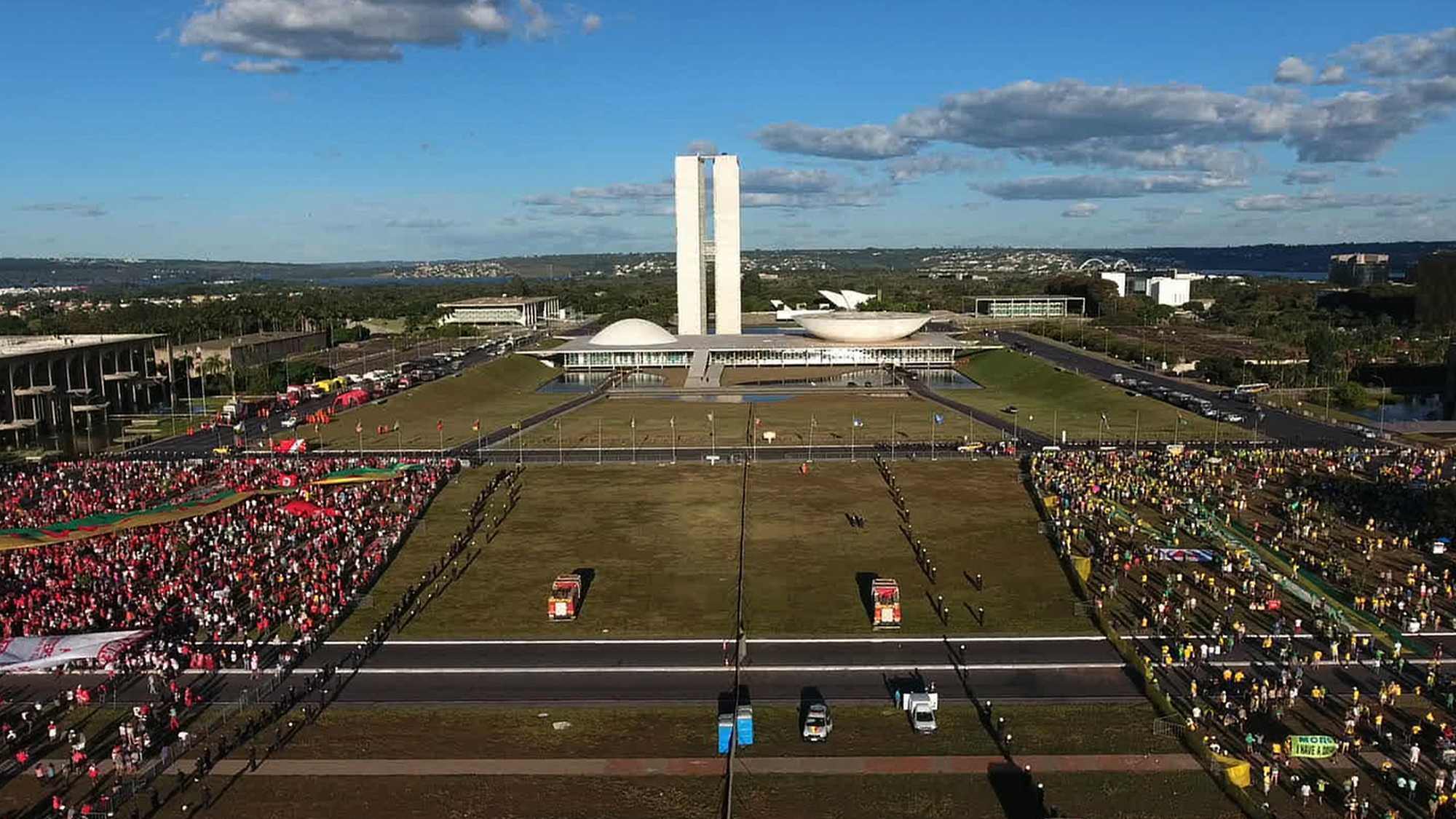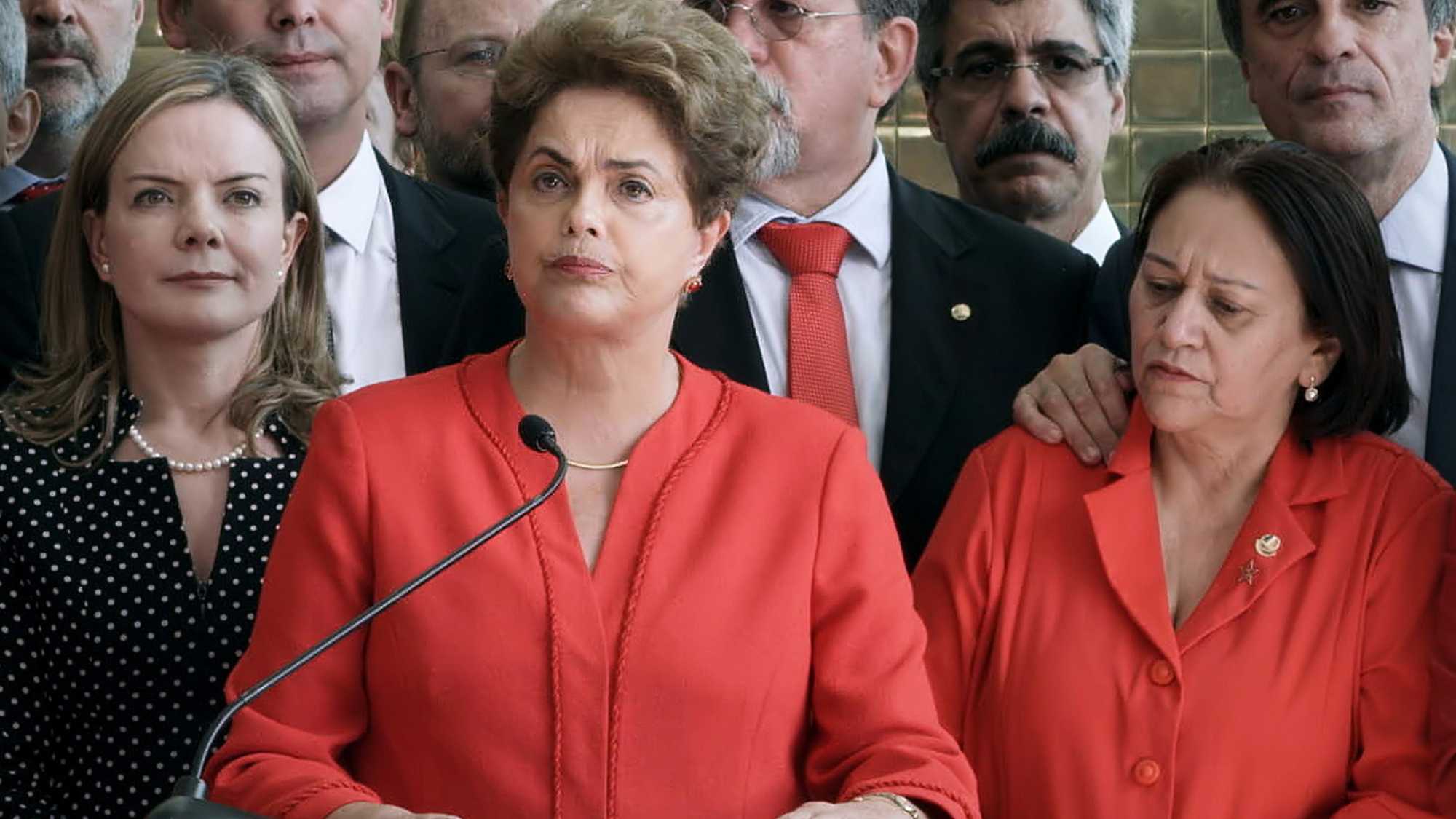In this searing close-up chronicle of the battle to impeach Brazilian president Dilma Rousseff, Maria Augusta Ramos shines a light on the bitter divisions in a country where politics, commerce and corruption appear inextricable.
%20KEY-2000-2000-1125-1125-crop-fill.jpg?k=62de660ed4)



Ramos’ non-interventionist style... opens the path of indignation and allows the audience to charge down its contaminated byways all on its own.
Screened as part of NZIFF 2018
The Trial 2018
O processo
While global headlines about Brazil in 2016 focused mostly on its race to be ready for the Olympic Games, the country itself was being torn apart by an altogether more serious story: the push to impeach President Dilma Rousseff. Maria Augusta Ramos’ gripping The Trial draws from 450 hours of footage to chronicle the heated and byzantine lead-up to an impeachment vote demanded by politicians set upon unseating the former political prisoner and left-wing leader over charges of breaking budget laws – a motivation Rousseff’s advocates dismiss as cover for emphatically less virtuous purposes.
Aided by exceptional access to the defence team, whom we follow through the dazzling corridors of Brasilia as protesters of both sides mass outside, The Trial is searing and damning but never didactic. The title – The Trial – is no accident: at one point Rousseff’s role in proceedings is sardonically compared to Kafka’s ambushed protagonist, Josef K.
The crescendo arrives in an extraordinary debate in the snake pit of the Brazilian senate. Rouseff’s impeachment – which may be better called a coup d’état – saw her replaced by her deputy, Michel Temer. Today, in a country that remains bedevilled by corruption and rancour, he faces ongoing calls for his own impeachment over bribery allegations. — Toby Manhire
“I hope it serves as a historical document for many years to come, to help people understand what happened. Of course, it is not objective in the sense that no film or documentary is objective. It is my vision, my version of a cinematic experience, of everything that I lived through.” — Maria Augusta Ramos